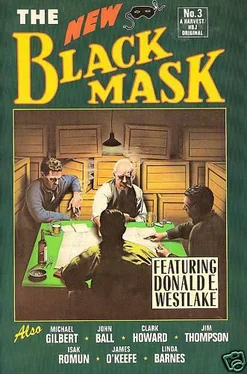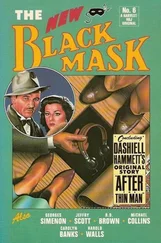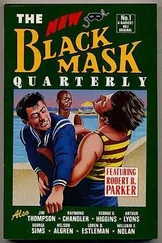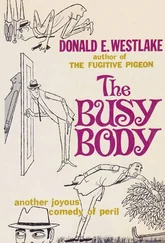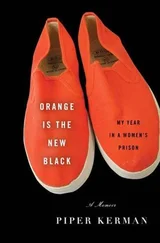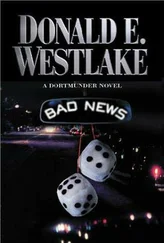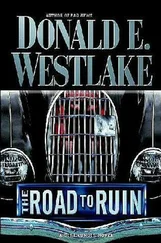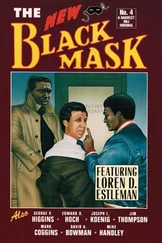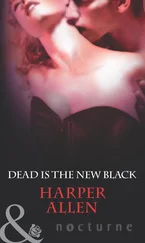Donald Westlake - The New Black Mask ( No 3 )
Здесь есть возможность читать онлайн «Donald Westlake - The New Black Mask ( No 3 )» весь текст электронной книги совершенно бесплатно (целиком полную версию без сокращений). В некоторых случаях можно слушать аудио, скачать через торрент в формате fb2 и присутствует краткое содержание. Год выпуска: 1985, ISBN: 1985, Издательство: A Harvest/HBJ Book Harcourt Brace Jovanovich, Жанр: Детектив, на английском языке. Описание произведения, (предисловие) а так же отзывы посетителей доступны на портале библиотеки ЛибКат.
- Название:The New Black Mask ( No 3 )
- Автор:
- Издательство:A Harvest/HBJ Book Harcourt Brace Jovanovich
- Жанр:
- Год:1985
- ISBN:978-0-15-665481-4
- Рейтинг книги:5 / 5. Голосов: 1
-
Избранное:Добавить в избранное
- Отзывы:
-
Ваша оценка:
- 100
- 1
- 2
- 3
- 4
- 5
The New Black Mask ( No 3 ): краткое содержание, описание и аннотация
Предлагаем к чтению аннотацию, описание, краткое содержание или предисловие (зависит от того, что написал сам автор книги «The New Black Mask ( No 3 )»). Если вы не нашли необходимую информацию о книге — напишите в комментариях, мы постараемся отыскать её.
The New Black Mask ( No 3 ) — читать онлайн бесплатно полную книгу (весь текст) целиком
Ниже представлен текст книги, разбитый по страницам. Система сохранения места последней прочитанной страницы, позволяет с удобством читать онлайн бесплатно книгу «The New Black Mask ( No 3 )», без необходимости каждый раз заново искать на чём Вы остановились. Поставьте закладку, и сможете в любой момент перейти на страницу, на которой закончили чтение.
Интервал:
Закладка:
Louis said, “You will be proceeding by car to one of the Channel ports?”
“To Dieppe.”
“Which will take you how long?”
“I am not one of your racing drivers. I shall spend at least one night en route. Possibly a second one outside Dieppe, where I have friends.”
“Then may I entrust my little girl to you?” Before Andrew could take in all the implications of this, he added, “She goes to visit an old friend in England. They were at school in Switzerland together. Normally she would go by brain, but in present circumstances I should be much happier—”
The length of this explanation had enabled Andrew to get his breath back. He said, “I should be delighted to be of service to you. It would be a very small return for the hospitality you have shown me.”
It had been a day of blue skies and hot sun. Andrew had driven steadily, but not fast. The roads had been bad to start with, but after Valence they had improved and as evening was closing in they were in the wooded, hilly country of the Puy-de-Dôme. Marie-Claude, who had been turning the pages of the Michelin guide, had found what sounded like a promising hotel above Châtelguyon in the Vallée de Sans Souci. It was classified as quiet, and possessing a jardin fleuri.
“That sounds fine,” said Andrew, “as long as they’re not all booked up.”
There were half a dozen cars in the courtyard outside the hotel. Andrew said, “Wait whilst I enquire.” He came back to say that they were in luck. There were just two rooms left.
“Lucky indeed,” said Marie-Claude gravely. She had got out of the car and had a holdall in one hand. As she stooped to pick up her suitcase Andrew said, “Let me,” took a suitcase in either hand, and followed her into the hotel.
The bedrooms were on the first floor, at the back. Looking out of his window, Andrew could see the flowered garden, and, beyond it, a wild stretch of wooded country now fading into the dusk of a late summer evening. There were lights away in the distance towards the southeast. Riom, he guessed. A helicopter buzzed overhead like an angry bumblebee. Andrew went downstairs thoughtfully. Marie-Claude was in the dining room when he got there. She was dressed as she had been when he saw her first, in her simple white dress. Andrew was conscious that every person in the room had observed, analysed, and recorded her, and that every man in the room was envying him.
Marie-Claude was unusually silent at dinner, and when she had finished her coffee, said, “I am tired. I will go up now.”
Andrew sat over a second cup of coffee, then over a glass of brandy. He knew that if he went up, he would not be able to go to bed and go to sleep. He would be too conscious of the fact that only an intervening door was separating him from a girl he desired more than anything he had ever desired in his whole life.
No doubt the door would be locked.
Doubly locked, in fact, by the trust that Louis Rocaire had placed in him.
“I entrust my little girl to you.”
He was vaguely aware that other people were arriving at the hotel, and thought that they would be unlucky since he and Marie-Claude had secured the last two rooms.
Possibly they had merely called in for dinner, though it was now nearly eleven. He heard voices in the hall, but no one came into the dining room. Ten minutes later he was sitting on the end of his bed. He had taken off his coat, but had made no further move to undress. The window was wide open and he could see the moon riding high over the dark woods, and could hear the owls talking to each other.
Then he heard another sound, closer at hand.
It came from Marie-Claude’s room, and was unmistakable. She was crying.
He walked across and tried the door gently. It opened under his hand. The girl had not undressed either. She was sitting on the edge of the bed. He strode across, put an arm round her shoulders, and said, “What is it, Marie-Claude, what’s wrong?”
Marie-Claude said, with a gap between each word, “I — am — so — frightened.”
At two o’clock that afternoon a car had drawn up at the entrance of the Rocaire house. Two men had gotten out. The driver and another man stayed in the car. It was clear that they were expected. One of the Corsican boys had led them to the business room where Louis was waiting for them, standing.
They shook hands briefly, and without any warmth. The spokesman of the two new arrivals was a thin man, with white hair and a brown face seamed with wrinkles, like the sand when the tide has ebbed. His companion was dark-haired, younger and thicker. He stood a pace behind the other as though to emphasise that he was a subordinate, though no one looking at his heavy, composed face would have doubted that he was a formidable man in his own right.
They all sat down. The white-haired man said, “We discovered, only this morning, and quite by chance, that you were entertaining an Englishman named Siward.”
“Andrew Siward. That is correct.”
“And he has been staying with you for the last five days.”
“That is also correct.”
“Would it be impertinent to enquire the reason for your hospitality?”
Louis considered the question. Then he said, “Yes. It would be impertinent. But since you evidently feel it to be important I will answer it. He turned out to be a very old friend of army days. Also, it occurred to me that his arrival might be providential.”
“In what way?”
Louis again considered before answering. Then he said, “I had certain plans, in which it seemed to me that he might be able to assist me. It has not, in the past, been my custom to discuss details of my plans with you. I have considered our functions as separate. You are the suppliers. I organise the onward transport and the distribution. Is there some particular reason why we should depart from this arrangement? It has worked very well in the past.”
“The reason,” said the white-haired man, “is that Major Siward — he does not now use his military title, I believe — is an official of the British Narcotics Control Section. A senior inspector in that organisation. He works directly under Colonel Foxwell, who is head of the French liaison branch, with headquarters in Paris. Naturally Siward was followed from the moment he arrived. It seemed to be a routine visit. He called at a number of offices of the Police Judiciare and the Douane along the coast. Six days ago, when he paid his bill and drove off, we assumed that he was on his way back to Paris or London. Apparently we were wrong. I think you will agree that in the circumstances we should be told exactly what use you were planning to make of Major Siward’s services.”
There was a long silence, broken by the white-haired man, who said, “If a mistake has been made, we have not much time to rectify it.”
“But how?” said Andrew. “And why?”
“You carried my suitcase into the hotel this evening. Because I had a holdall and a smaller bag.”
Andrew thought about it, and said, “Naturally.”
“Then, naturally, when we arrive at Newhaven, you would carry it through the Customs.”
“Of course.”
“Open it and take a look inside. It’s not locked.”
The suitcase was on the second bed. Andrew opened it and stood for a long moment staring down. Then he said, gently, “Well, you do surprise me.”
The suitcase was full of what certainly looked like his own clothes. He picked out the jacket of a tweed suit. It carried the label of his tailor.
“It will fit you too,” said Marie-Claude. “That was why they took away your suit on the first day you were with us.”
“Quick work, all the same.”
“They are very quick. And very clever.”
“And the stuff is in a hidden compartment underneath?”
Читать дальшеИнтервал:
Закладка:
Похожие книги на «The New Black Mask ( No 3 )»
Представляем Вашему вниманию похожие книги на «The New Black Mask ( No 3 )» списком для выбора. Мы отобрали схожую по названию и смыслу литературу в надежде предоставить читателям больше вариантов отыскать новые, интересные, ещё непрочитанные произведения.
Обсуждение, отзывы о книге «The New Black Mask ( No 3 )» и просто собственные мнения читателей. Оставьте ваши комментарии, напишите, что Вы думаете о произведении, его смысле или главных героях. Укажите что конкретно понравилось, а что нет, и почему Вы так считаете.
